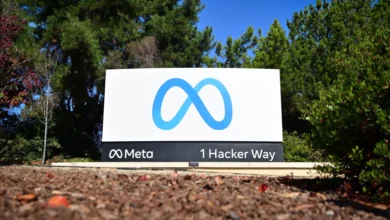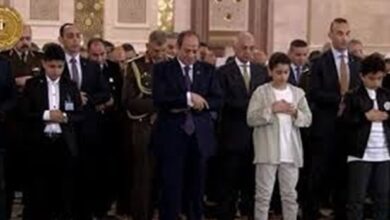There is a part of the internet that will forever remain 24 January 2011, and much of it lurks on Facebook.
The social networking site is littered with numerous “I Am Sorry, Mubarak” pages at various stages of activity – a bit like the ex-president himself, who is currently deposited in a Cairo hospital with what has been described as “severe depression”.
At his court appearance last week, numerous commentators remarked that Mubarak looked surprisingly robust – despite being wheeled in on a gurney – in contradiction of rumors that he was on hunger strike and fading fast. Once upon a time state media could be relied on to cheerlead for Mubarak, and it was the opposition, mostly denied a platform, even in the private media, that carved out a space for itself online, while the mainstream media remained firmly on-message.
But in the post-Mubarak era, even state-run papers claim the mantle of the revolution and a huge movement for independence and “cleansing" of state media is underway. While their coverage of Egypt’s political scene remains inconsistent, it is nowhere near the unconcealed partisanship of the Mubarak era, which reached its nadir during the uprising last winter.
It is now the turn of Mubarak supporters – who could once rely on state media for a daily dose of Mubarak and his achievements – to take to the internet.
While it is impossible to get an accurate count of the myriad unofficial pro-Mubarak Facebook groups existing in cyberspace, they are many. At least eight groups are called “I am sorry, president”, with the largest including over 100,000 members.
All of the groups share a frenzied love of Mubarak and his legacy. The most vivid example of this is not a group, but an individual calling himself “No to the humiliation of figures” and whose profile picture is Mubarak in a heart being carried aloft by two hands and whose wall consists of an identical repeated message.
“I wish I could sit at your feet in hospital. I miss you so much, president,” the message reads.
“I miss everything about you. I miss seeing your picture, hearing your voice. I miss the way you stand, what you say… I don’t know what to do, I want to come to you… On 3 August [when Mubarak appeared in court]… the world died before my eyes and I had nothing left to live for,” it continues.
Another distinguishing feature of these groups is fear, in particular the fear of a US-Iranian-Zionist threat to Egypt’s security, now that Mubarak is not in a position to defend Egypt’s interests.
The “President Hosni Mubarak Lovers” group links to an article at www.25yanayer.net, which informs us that possible presidential candidate and longtime enemy of the Mubarak camp, Mohamed ElBaradei, has founded a “Sufi-Shia-Liberal coalition to confront the Muslim Brotherhood and the Salafis.”
Group member Mohamed al-Sayyed reveals that ElBaradei wants to “set the country on fire" and form a Shia political party.
The appearance of Mubarak in court was, predictably, a body blow for his loyal fans, who responded by creating “the official page of the Arab lawyers defending President Mubarak.”
As with the other groups, this page is mostly concerned with exposing nefarious plots against Egypt and Mubarak. On 9 August 2011, it declared that the “time has come to reveal the truth,” and informed readers that according to its “special sources”, charges would be pressed against the April 6 Youth Movement (or as they call it the 6 Devil Youth Group), which it says used snipers to kill protesters during the revolution in cooperation with the CIA.
It was April 6, the group says, that was behind the death of protesters run over by a US Embassy vehicle.
The godfather of these groups, however, is named “I Am Sorry, President” and boasts over 100,000 members. It is largely a twilight zone of paranoid conspiracy theories interspersed with paeans to the deposed president.
Individuals dismissed in wider society as kooks or remnants of the Mubarak regime find a home on this page; notable mentions include musician Amr Mostafa, who, in a recent television interview, rolled out a series of anti-revolutionary conspiracy theories and mentioned in passing that the Arabic word for “he wants” is actually a “Jewish word” indicative of a Zionist plot against Egypt.
The “I Am Sorry, President” page links to the interview with the introduction, “Amr Mostafa proves he’s a real man.”
Notably, the group intersperses its online vituperation against the revolution and its adherents with offline activities of varying form and legality.
On Tuesday the group announced that its “forces, the last of the respectable Egyptian citizens” had “reinstated Mubarak’s name” to the recently renamed Martyrs metro station, and accompanied this declaration with a photograph of a metro sign spray painted over and “Hosni Mubarak” scrawled hastily below it.
On 23 July, meanwhile, group administrators Hassan al-Ghandour and Karim Hussein demonstrated their devotion to Mubarak and Egypt by kidnapping a citizen, activist Amr Gharbeia, who they alleged was a member of the April 6 Youth Movement.
No charges have been brought against either man, despite Ghandour’s confession to kidnapping – or “detaining” as he put it – Gharbeia on a satellite television program.




